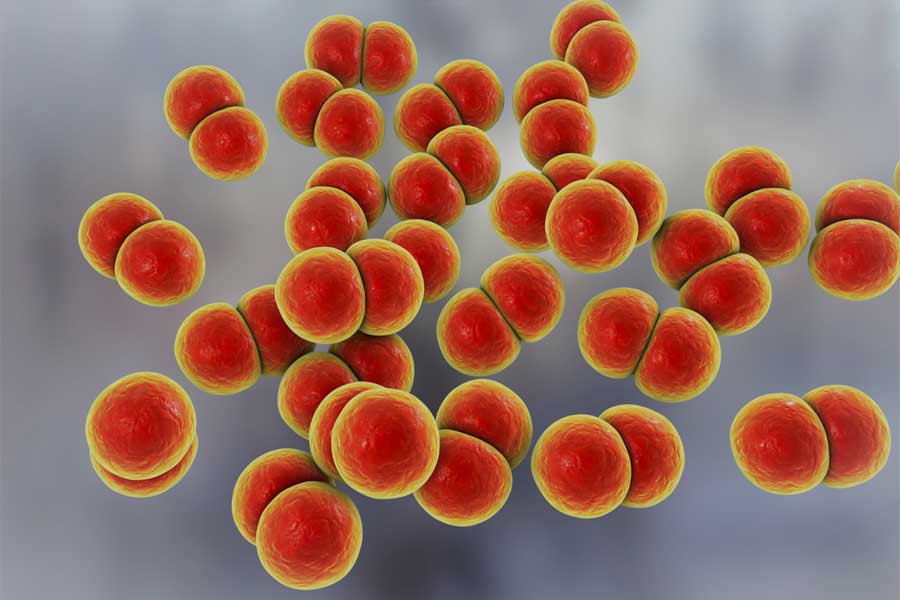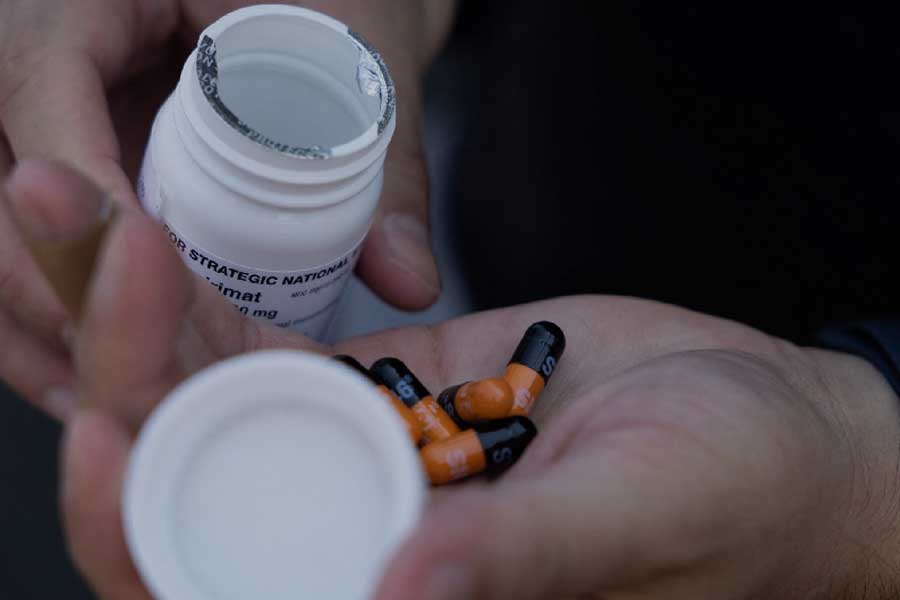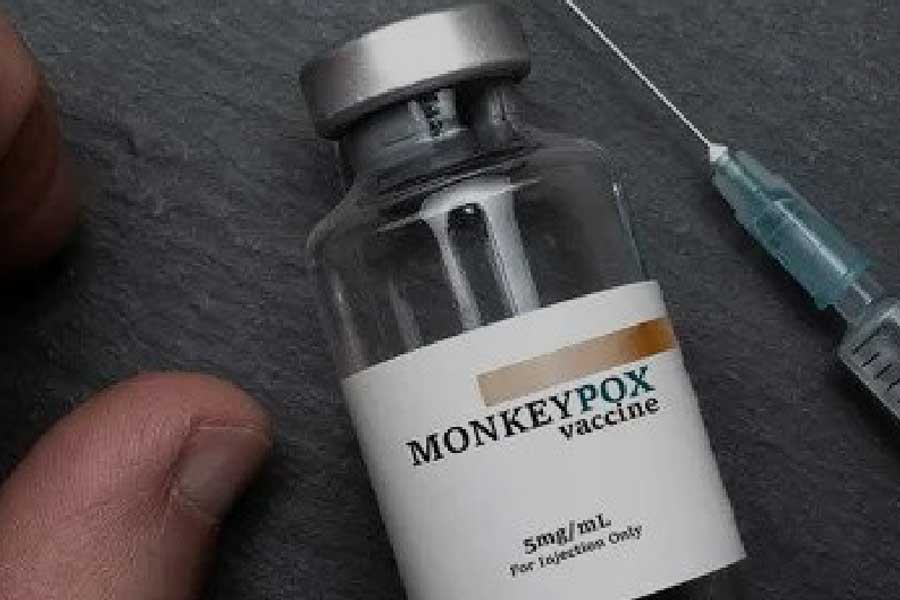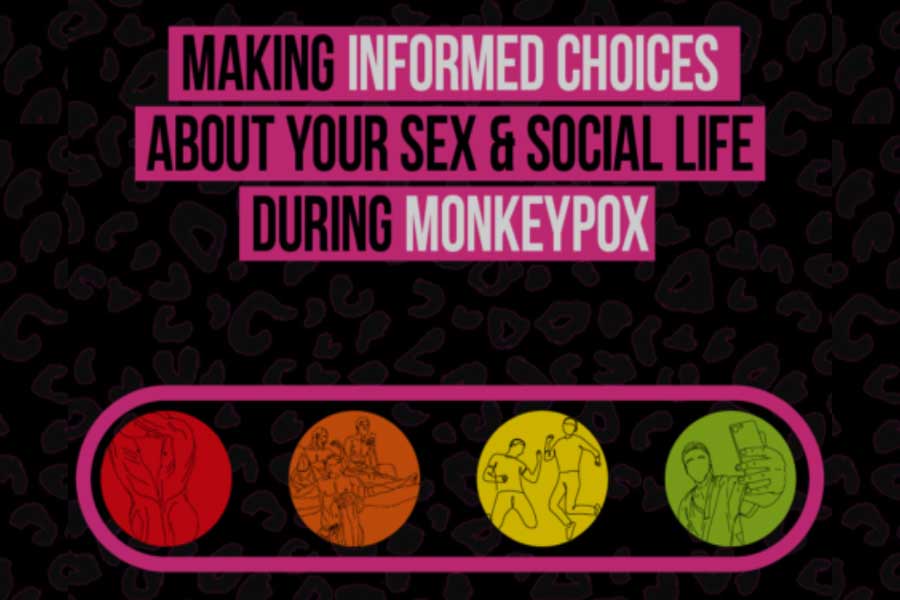Let’s Talk About
What is MPOX (Monkeypox)?
Update 6th September 2023: MPOX hasn’t gone away. The virus continues to circulate globally with recent cases identified in Ireland and across Europe.
As long as new cases occur, the potential for new outbreaks in our community remains. Even though case numbers are relatively low in Ireland, getting fully vaccinated is still really important. Vaccination reduces the risk of getting mpox, and if infection occurs in a vaccinated person, it is likely to be a lot less severe.
Click here for more information about booking an mpox vaccine.
What is Mpox?
Mpox (monkeypox) is a viral infection. It can lead to an illness that ranges from mild to severe and can last a number of weeks. Up until recently, it was only seen in countries where the virus is endemic (very common) and sometimes in people who return home from those countries.
However, this current outbreak in non-endemic countries is primarily seeing the virus spreading among sexual networks of gay, bisexual and other men who have sex with men (gbMSM) through close contact with someone that has MPOX (monkeypox). Most people are not seriously unwell with MPOX (monkeypox) but some can experience intense pain. Serious illness is more likely in those with a weak immune system, pregnant people and young children. So far, in non-endemic countries, MPOX (monkeypox) is rarely fatal, however, people have died during this current outbreak.
MPOX (monkeypox) is usually a self-limiting illness, meaning most people will recover from the virus themselves at home within a few weeks.
Most people are not seriously unwell with MPOX (monkeypox) but some can experience intense pain. Serious illness is more likely in those with a weak immune system, pregnant people and young children. Very few people in Ireland have been hospitalised with MPOX (monkeypox). So far, in non-endemic countries, MPOX (monkeypox) is rarely fatal, however, people have died during this current outbreak.
For up to date information about MPOX (monkeypox) visit the HPSC website
How is MPOX (Monkeypox) Transmitted?
MPOX (monkeypox) can be passed on from person to person through:
- Very close contact with a person that has a moneypox skin rash, blisters, ulcers or scabs. This includes any kind of sexual contact (oral sex, anal, vaginal/frontal) and intimate contact (kissing, cuddling, holding hands).
- Contact with clothing, bedding, towels, etc that have been used by a person who has MPOX (Monkeypox).
- Breathing in droplets from the coughing or sneezing of someone who has MPOX (Monkeypox).
It is important to know that we are still learning about how MPOX (Monkeypox) is transmitted. We’ll update you on this page and through social media as we know more.
What are the symptoms of MPOX (Monkeypox)?

Initial symptoms of MPOX (monkeypox) usually appear within 5 to 21 days of being exposed to the virus. Symptoms include:
- fever (of 38C or higher),
- headache,
- muscle aches,
- backache,
- swollen lymph nodes,
- chills & exhaustion.
- pain or bleeding from your rectum (bum)
An important symptom to remain alert to is an unusual rash, spots, blisters, ulcers or scabs.
These can occur on any part of your body but many of the people in this current outbreak are developing the spots in or around their genitals, bum or mouth. The spots go through a number of stages (see pictures below). Starting as raised red spots, which turn into small blisters that are filled with fluid. The blisters eventually begin to form scabs which later fall off. Images of the different stages of the rash can also be found on the HPSC website at the following link: www.hpsc.ie/a-z/zoonotic/MPOX (monkeypox)/factsheets
What if I have MPOX (Monkeypox) symptoms?

If you are experiencing what you think might be the symptoms of MPOX (monkeypox), the first piece of advice is don’t panic! However, it is important, if you do notice any such changes, that you contact your General Practitioner (GP or family doctor) or local STI Clinic to discuss your symptoms. Do not attend a clinic or your GP without calling ahead first so that they can be prepared for your arrival and offer you the best care. To find your local sexual health clinic click here.
If you need to be seen by a doctor, they will organise an appointment for you and will give you advice on how to get to the clinic. In the meantime, keep your distance from other people and do not engage in sexual contact until you have been seen.
You can find a list of public STI services available on the HSE’s Sexual Wellbeing website or at man2man.ie/testing
How is MPOX (Monkeypox) treated?

MPOX (Monkeypox) infection is usually a self-limiting illness and most people recover within weeks, although it can occasionally cause severe complications including death. In endemic MPOX (Monkeypox) infection, severe disease has been seen in people with very weak immune systems, pregnant women and in very small babies.
There is no medicine that can cure MPOX (Monkeypox). Treatment of MPOX (Monkeypox) is mainly supportive. This involves treating any uncomfortable symptoms, such as pain or itch, that occur, keeping the patient warm, comfortable and relaxed, and making sure they get plenty of fluids. This allows the person’s own body defences to fight the infection.
Further information on MPOX (Monkeypox) infection can be found on the HPSC website: https://www.hpsc.ie/a-z/zoonotic/MPOX (Monkeypox)/.
HPSC will continue to closely monitor this situation and provide relevant updates to the public as appropriate.
Vaccine Information

The mpox vaccine programme is currently paused. The HSE is working on a new plan to provide the vaccine.
We will update this page when the HSE can offer vaccines again.
Current Outbreak of MPOX (Monkeypox)

Anyone, regardless of their sexuality, can get MPOX (Monkeypox) if in close physical contact with a case. This outbreak is disproportionately affecting gay, bisexual and other men who have sex with men (gbMSM).
Cases of MPOX (Monkeypox) are being diagnosed each week in Ireland, most but not all are happening in Dublin. As MPOX (Monkeypox) is passed on through very close contact with the lesions of a person with MPOX (Monkeypox), sexual contact (oral sex, anal, vaginal/frontal) and intimate contact (kissing, cuddling, holding hands) pose a considerable risk. To learn more about making informed choices about your sex and social life during the MPOX (Monkeypox) outbreak, check out this Instagram post
As the virus spreads through close contact, the HSE is advising those who self-identify as gbMSM to be alert to any unusual rashes or vesicular lesions on any part of your (or your partner’s) body, especially your genitalia. If they do notice any such changes, you should contact your local STI Clinic or their General Practitioner (GP) for advice. You should keep away from other people and not engage in sexual activities until you have been seen. A list of public STI services is available on the HSE’s Sexual Wellbeing website https://www.sexualwellbeing.ie/sexual-health/hse-sti-services-in-ireland.html.
For up to date information about MPOX (Monkeypox) visit theHPSC website MPOX (Monkeypox) FAQs.
MPOX (Monkeypox): Safer Sex Choices

Sex is an important part of the lives of many of us. We know that during this outbreak people are going to continue having sex, so we’ve some suggestions on how to make sex safer, if you choose to have it. It’s important to know that we are still learning about how MPOX (monkeypox) is transmitted, stay connected to our website and socials for updates.
Consider reducing sexual partners
Reducing your number of sexual partners until the vaccine becomes more readily available will reduce the risk of getting MPOX (monkeypox). Group sex and sex parties could be swapped for fun with a regular partner or in a sex bubble.
Create a sex bubble
Similar to how people established bubbles to make socialising safer from COVID-19 – we can do the same for sex. Choose a small group of partners that agree to limit sex to members of the bubble. Stay alert to any symptoms and let members of the bubble know if you have a potential exposure.
Wear more clothing or gear
MPOX (Monkeypox) is mostly spread through skin- to-skin contact. Having sex with your clothes on or by wearing leather or latex gear during sex can provide protection – just remember to change or clean clothes and gear between partners.
Go Virtual, Distanced, or Solo
Masturbation when connected with others online or in-person without touching will prevent MPOX (monkeypox). It might also be a good time to explore your own body with sex toys.
Practice open and honest communication
Before meeting up with a partner, talk about MPOX (monkeypox). Have you or have they had any recent sexual partners? Talk about whether you have any sores or other MPOX (monkeypox) symptoms. Get a contact number and agree to let the other person know if you develop symptoms.
Consider Condoms
Condom use won’t fully protect against MPOX (Monkeypox), but it could help reduce the risk of skin-to-skin contact with any lesions on or in the bum and genitals. It may also prevent transmission via bodily fluids, like cum.
Take care of yourself and others
Be kind to one another as we learn how to navigate this challenging time. Get vaccinated when you can. If you have flu-like symptoms or a new rash, stay at home and contact your sexual health service or GP to organise a test.
A list of public STI services is available on the HSE’s Sexual Wellbeing website https://www.sexualwellbeing.ie/sexual-health/hse-sti-services-in-ireland.html.
What happens at MPOX (Monkeypox) Test?

When you come to be tested you will be brought to a consultation room. You will then be phoned by a doctor who will ask a range of questions about your symptoms and sexual history. The doctor will then arrive in full protective clothing to assess you.
The assessment will involve checking for swollen glands and examining any lesions in particular around the groin and bum. If you have lesions, a swab will be taken. If no lesions are present, they will take a swab from your throat. You will then be asked to remain isolated until your results are ready which is usually the next day, or on a Monday if your test is on a Friday. You will also be given a leaflet explaining what to do in case of a positive result.
Watch the video here: https://youtu.be/yNjlC-4ar88.
Where can I get further information?

It’s important to get information from reliable sources. GHN and man2man.ie are working closely with the Health Service Executive (HSE) and Health Protection Surveillance Centre (HPSC) to ensure information is accurate and accessible. We are also working closely and collaborating with MPOWER on a targeted communications campaign and outreach initiative.
Further Information:
Health Protection Surveillance Centre – Latest Updates about MPOX (monkeypox)



